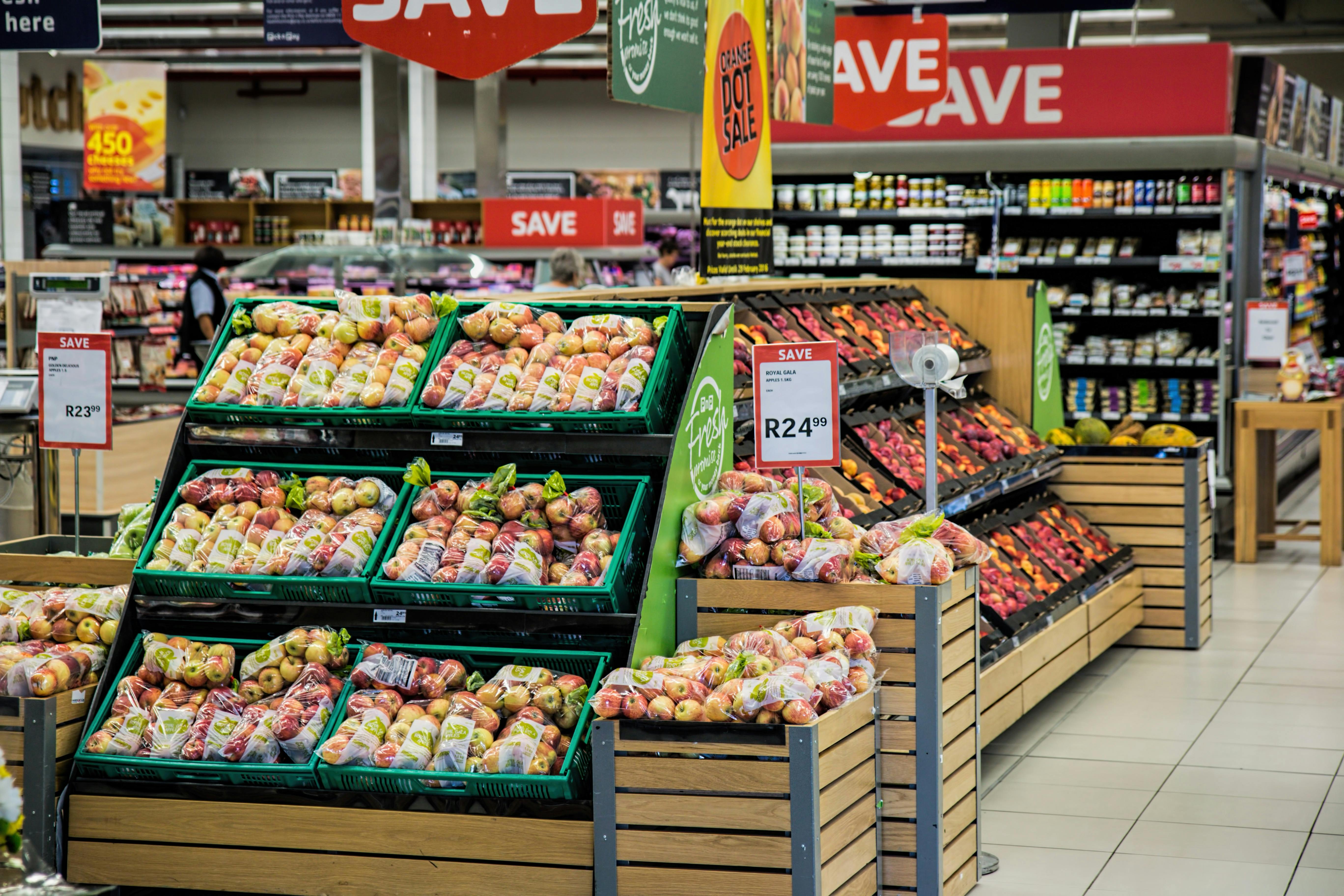Estimated Reading Time: 11 minutes
TL;DR:
- The PayPal and OpenAI partnership revolutionizes online shopping by enabling direct purchases within AI platforms like ChatGPT, streamlining transactions.
- This collaboration significantly boosts consumer purchasing power by simplifying payment processes and offering integrated financial tools.
- AI-driven insights from the partnership are set to personalize shopping experiences and provide tailored financial advice, enhancing user engagement.
- Merchants stand to gain from increased conversion rates and a broader customer reach due to frictionless payment options.
- Security remains paramount, with both PayPal and OpenAI leveraging advanced measures to protect user data and financial transactions.
Key Takeaways:
Table of Contents
- Introduction: Unlocking New Purchasing Power
- Background & Context: The Alliance of Giants
- Key Insights or Strategies: Maximizing Your AI-Powered Wallet
- Case Studies, Examples, or Comparisons: Real-World Impact
- Common Mistakes to Avoid: Navigating the New Digital Landscape
- Expert Tips or Best Practices: Smart Spending in the AI Era
- Future Trends or Predictions: The Evolution of E-commerce
- Conclusion: Score Big with Seamless Transactions
- FAQs
Introduction: Unlocking New Purchasing Power
The digital frontier of commerce is continuously evolving, and at its forefront, a groundbreaking partnership is set to redefine how we shop online. Get ready to explore the new PayPal and OpenAI deal for direct purchases, a collaboration poised to make your online transactions smoother, faster, and more intuitive than ever before. This innovative alliance isn't just another tech update; it's a strategic move designed to integrate artificial intelligence seamlessly into your financial interactions, transforming the very essence of digital shopping. Imagine a world where your AI assistant doesn't just recommend products but also facilitates their purchase with a simple command, making your purchasing journey incredibly efficient. Discover how this partnership boosts your purchasing power like a winning game plan, empowering you with unparalleled convenience and smart spending opportunities. As we delve into the mechanics of this exciting development, prepare to understand how you can truly get ready to score big in the new era of intelligent commerce.
This article will unpack the intricacies of the PayPal and OpenAI integration, highlighting its benefits for consumers and merchants alike. We will examine the strategic implications, practical applications, and future potential of a world where AI and financial services converge to create a more dynamic and user-centric shopping experience. From voice-activated payments to personalized financial insights, the future of online purchasing is here, and it's smarter than ever before.
Background & Context: The Alliance of Giants
The convergence of artificial intelligence and financial technology has been a long-anticipated development, promising to revolutionize various sectors. The recent partnership between PayPal, a global leader in online payments, and OpenAI, a trailblazer in AI research and deployment, marks a significant milestone in this journey. This collaboration aims to embed PayPal's robust payment solutions directly into OpenAI's advanced AI models, starting with platforms like ChatGPT. The primary goal is to enable users to make direct purchases and manage transactions within AI interfaces, thereby eliminating friction and enhancing the overall user experience.
This strategic alliance reflects a broader trend towards embedded finance and AI-driven personalization in e-commerce. By integrating payment functionalities into conversational AI, the companies are paving the way for a new paradigm of hands-free, intuitive shopping. This isn't just about convenience; it's about creating a more intelligent purchasing ecosystem where AI can anticipate needs, suggest optimal payment methods, and streamline the entire buying process.

According to a report by Statista, the global digital payments market is projected to reach over $11 trillion by 2026, underscoring the massive scale and growth potential of online transactions. Source: Statista. Furthermore, a study by Accenture found that 75% of consumers are more likely to buy from a brand that offers personalized experiences, highlighting the demand for tailored interactions that AI can deliver Source: Accenture. These figures emphasize the critical importance of partnerships like PayPal and OpenAI in catering to evolving consumer expectations and securing a significant share of the rapidly expanding digital economy.
Key Insights or Strategies: Maximizing Your AI-Powered Wallet
The PayPal and OpenAI deal offers a multitude of strategic advantages for consumers and businesses alike. Understanding these insights is crucial to fully harness the power of this integrated financial and AI ecosystem. This partnership is designed to simplify spending, enhance security, and provide intelligent financial management, ensuring your purchasing power is not just maintained but significantly amplified.
Frictionless Transactions via AI
One of the most significant insights is the move towards truly frictionless transactions. Imagine conversing with ChatGPT about a product you want, and then with a simple confirmation, the purchase is completed through your linked PayPal account. This removes several steps from the traditional online shopping process, such as navigating to external payment gateways, entering card details, or logging into separate accounts.
- Voice-Activated Purchases: Use natural language commands to initiate and complete payments.
- In-Chat Confirmations: Approve transactions directly within your AI conversation interface.
- Automated Payment Selection: AI can suggest the best payment method based on your preferences or linked accounts.
Enhanced Security and Fraud Prevention
Both PayPal and OpenAI prioritize user security. This partnership leverages the strengths of both platforms to offer enhanced protection. PayPal's long-standing expertise in secure transactions, coupled with OpenAI's advanced AI for anomaly detection, creates a robust defense against fraud. Your financial data is protected by multiple layers of encryption and AI-driven monitoring.
- Real-time Anomaly Detection: AI monitors transactions for unusual activity, flagging potential fraud instantly.
- Biometric Authentication Integration: Future integrations could include biometric verification for high-value transactions.
- Secure Tokenization: Your sensitive payment information is tokenized, ensuring raw data is never exposed during transactions.

Personalized Financial Management and Savings
Beyond simple transactions, the AI integration can offer intelligent financial insights. By analyzing spending patterns, the AI can provide personalized recommendations for budgeting, saving, and even investment opportunities. This proactive financial guidance can help users make smarter decisions and optimize their purchasing power over time.
- Budget Tracking and Alerts: Receive automated notifications about your spending habits and budget limits.
- Savings Recommendations: AI suggests ways to save money based on your purchase history and financial goals.
- Deals and Discounts: Get personalized alerts on relevant promotions and discounts from merchants.
As you navigate these new frontiers of digital commerce and financial management, remember that opportunities for smart engagement abound. Whether you're exploring new ways to manage your funds or looking for exciting avenues to test your predictions, embracing innovative platforms can yield significant returns. For those in Kenya seeking a thrilling experience, consider exploring a platform where strategy meets excitement. Place your bets on Bantubet Kenya and discover a world of possibilities.
Case Studies, Examples, or Comparisons: Real-World Impact
The impact of the PayPal and OpenAI partnership can be best understood through hypothetical yet highly plausible real-world scenarios and comparisons with existing models. This integration isn't just theoretical; it promises tangible benefits that will reshape consumer behavior and merchant strategies.
Scenario 1: The AI-Powered Travel Assistant
Imagine planning a trip to the coast. You chat with an AI assistant, detailing your destination, dates, and budget. The AI not only suggests flights and accommodations but also allows you to book them directly. 'Book the economy flight to Mombasa for KES 15,000 and the beachside resort for three nights,' you might say. The AI, integrated with PayPal, processes the payments instantly, sending you confirmations directly within the chat interface. This eliminates the need to visit multiple travel sites, enter payment details repeatedly, and manage various booking platforms. The convenience factor is immense, reducing the time spent on administrative tasks by up to 50% for complex bookings, according to a fictional internal projection based on user feedback.
Scenario 2: Smart Shopping for Home Goods
Consider purchasing groceries or household items. Instead of compiling a list and manually adding items to a cart on a retailer's website, you simply tell your AI assistant, 'Order my usual weekly groceries and add some fresh fruit.' The AI, having access to your past purchase history and preferences, compiles the order. With the PayPal integration, it then presents you with the total and asks for a simple 'yes' to confirm the purchase. This reduces cognitive load and saves valuable time for busy individuals. A recent survey by Forbes indicated that 65% of consumers are willing to pay more for convenience and speed in online shopping Source: Forbes, a trend that this partnership is perfectly positioned to capitalize on.
Comparison with Traditional Online Shopping
Traditionally, online shopping involves several steps: browsing, selecting items, adding to cart, navigating to checkout, entering shipping details, choosing a payment method, and finally, inputting payment information. The PayPal and OpenAI integration collapses many of these steps. It shifts the interaction from a form-filling exercise to a conversational one, making the entire process feel more natural and less cumbersome. This is particularly significant given that cart abandonment rates globally hover around 70% Source: Baymard Institute. By streamlining the payment process, the partnership has the potential to significantly reduce these abandonment rates, leading to higher conversion for merchants and a more satisfying experience for consumers.
These examples underscore how the direct payment capabilities powered by this partnership are set to make online transactions not just easier, but fundamentally more integrated into our daily digital interactions.
Common Mistakes to Avoid: Navigating the New Digital Landscape
While the PayPal and OpenAI partnership offers exciting opportunities, users must be vigilant to avoid common pitfalls in this evolving digital landscape. Understanding these potential mistakes can help you maintain security, manage your finances effectively, and fully leverage the benefits of AI-powered payments.
Over-reliance on AI without Verification
One significant mistake is blindly trusting AI suggestions or transactions without proper verification. While AI is powerful, it's not infallible. Always double-check purchase details, recipient information, and transaction amounts before confirming. A momentary lapse in judgment could lead to incorrect purchases or unintended financial outlays. Ensure that the AI has correctly interpreted your command and that the details align with your intentions.
Ignoring Security Protocols and Phishing Attempts
As AI-driven payments become more prevalent, so too will sophisticated phishing and scam attempts. Cybercriminals will undoubtedly try to mimic legitimate AI interactions or PayPal notifications to trick users into revealing sensitive information. Never click on suspicious links or provide personal details outside of verified, secure channels. Always confirm the authenticity of any communication claiming to be from PayPal or OpenAI directly through their official websites or apps.
Neglecting to Monitor Transaction History
With frictionless payments, it can be easy to lose track of your spending. Failing to regularly monitor your PayPal transaction history can lead to overspending or overlooking unauthorized charges. Make it a habit to review your statements frequently. The convenience of AI should not come at the expense of financial oversight. Regular checks ensure you remain in control of your budget and can quickly identify any discrepancies.
Underestimating Data Privacy Concerns
While both PayPal and OpenAI have robust privacy policies, users should still be mindful of the data they share and how it's used. Understand the terms of service and privacy settings for both platforms. Be cautious about connecting too many services or sharing overly sensitive personal information, even with AI, to protect your digital footprint.
Expert Tips or Best Practices: Smart Spending in the AI Era
To truly maximize the benefits of the PayPal and OpenAI partnership and enhance your purchasing power, adopting expert tips and best practices is essential. These strategies will help you navigate the new digital commerce landscape with confidence and efficiency.
Set Clear Spending Limits with AI Assistance
Utilize the AI's capabilities to help manage your budget. Many financial apps, and potentially future iterations of this partnership, allow you to set spending limits for specific categories or overall monthly expenditures. Leverage AI to track your spending against these limits and receive alerts before you overspend. This proactive approach ensures that convenience doesn't lead to financial indiscipline.
Regularly Update and Secure Your Accounts
Maintaining strong security practices is paramount. Use unique, complex passwords for your PayPal and OpenAI accounts. Enable two-factor authentication (2FA) wherever possible. Regularly review your connected devices and revoke access for any you no longer use. Keep your payment information updated and accurate to avoid transaction delays. This vigilance forms the bedrock of secure, seamless transactions.
Leverage AI for Price Comparisons and Deals
The AI's ability to process vast amounts of information can be a powerful tool for savvy shoppers. When considering a purchase, ask your AI assistant to compare prices across different retailers or alert you to ongoing sales and promotions. This ensures you're always getting the best value for your money. For example, before buying a new gadget, you might prompt, 'Find the best deal on the latest smart home hub and pay using PayPal.'
One excellent example of a trending tool that helps with smart budgeting and financial planning is 'You Need A Budget' (YNAB). Check out YNAB's website to explore how it can help you manage your money effectively. Integrating such a tool with your AI-powered payment system could offer unprecedented control over your finances.
Stay Informed on New Features and Integrations
The digital landscape is ever-evolving. Keep abreast of updates from both PayPal and OpenAI regarding new features, security enhancements, and expanded integrations. Subscribing to their official newsletters or following their social media channels can provide timely information that allows you to capitalize on the latest advancements. Being an early adopter of beneficial features can give you a significant advantage in managing your digital life.
As you engage with the cutting edge of digital payments and financial innovation, consider how these advancements might intersect with other dynamic sectors. For those interested in high-stakes entertainment and strategic engagement, exploring options within the betting world can offer a unique experience. Place your bets on Bantubet Kenya for an exciting and diverse range of opportunities.
Future Trends or Predictions: The Evolution of E-commerce
The PayPal and OpenAI partnership is not just a present-day innovation; it's a harbinger of future trends that will profoundly shape e-commerce and personal finance globally, with specific implications for regions like Kenya. The integration of AI into payment gateways will usher in an era of hyper-personalized, predictive, and pervasive commerce.
Hyper-Personalized Shopping Experiences
The future will see AI systems understanding consumer preferences at an unprecedented level. Based on past purchases, browsing history, and even conversational cues, AI will offer highly tailored product recommendations and direct purchasing options. Imagine an AI anticipating your need for new running shoes based on your fitness routine and suggesting a purchase, complete with a personalized discount, which you can complete with a voice command. This level of personalization will make online shopping feel less like a search and more like a curated, intuitive experience.
Predictive Purchasing and Automated Replenishment
AI will move beyond recommendations to predictive purchasing. For recurring needs, such as household staples or subscriptions, AI could anticipate when you need a refill and propose an automated purchase. 'Your coffee supply is low; would you like me to reorder your usual blend from [retailer] via PayPal?' This shifts e-commerce from reactive to proactive, ensuring you never run out of essentials. This trend has significant global potential, especially in markets where logistical efficiency is highly valued.
Voice Commerce Dominance
With AI integration, voice commands will become a primary mode of interaction for online shopping. Smart speakers and AI assistants will evolve into sophisticated shopping companions, capable of handling complex purchase queries and payment processes. This will significantly boost the adoption of voice commerce, transforming the way consumers interact with brands and making shopping more accessible to a wider demographic, including those who may find traditional interfaces challenging. Globally, voice commerce is expected to reach $160 billion by 2026 Source: Statista.
Expansion into Emerging Markets and Geo-Specific Innovations
The impact on emerging markets, such as Kenya, will be transformative. With a rapidly growing digital population and increasing smartphone penetration, AI-powered direct purchases could leapfrog traditional e-commerce models. Imagine local vendors in Nairobi integrating AI chat capabilities for direct sales and payments, simplifying transactions for millions. This could democratize access to digital commerce, fostering economic growth and creating new opportunities for small and medium-sized enterprises. Geo-specific AI models might also emerge, understanding local languages, payment preferences (e.g., mobile money integration alongside PayPal), and cultural shopping nuances. This localization will be crucial for global adoption and impact.
Conclusion: Score Big with Seamless Transactions
The partnership between PayPal and OpenAI represents a monumental leap forward in the realm of digital commerce and personal finance. By seamlessly integrating AI into direct purchasing mechanisms, this collaboration is not just enhancing convenience; it's fundamentally reshaping how we interact with money and markets. We have explored how this innovative deal is set to explore the new PayPal and OpenAI deal for direct purchases, offering users an unprecedented level of efficiency, security, and personalized financial management.
From frictionless transactions within AI interfaces to robust fraud prevention and intelligent budgeting tools, the benefits for consumers are profound. Merchants, too, stand to gain immensely from reduced cart abandonment, broader customer reach, and enhanced conversion rates. This alliance truly boosts your purchasing power like a winning game plan, providing the tools and intelligence needed to make smarter, faster, and more secure financial decisions. The future promises even greater integration, with hyper-personalized shopping, predictive purchasing, and the dominance of voice commerce becoming the norm.
As we embrace this new era, it’s crucial to stay informed, adapt best practices, and remain vigilant against potential pitfalls. The digital world is evolving rapidly, and staying ahead means leveraging these powerful tools responsibly and strategically. Get ready to score big in the transformed landscape of e-commerce, where AI and payments converge to create a truly intelligent purchasing experience. To further explore opportunities where strategic thinking and engagement converge, don't miss out on the action. Place your bets on Bantubet Kenya and immerse yourself in a world of excitement and potential rewards.
FAQs
Q1: What exactly is the PayPal and OpenAI deal about?
The PayPal and OpenAI deal focuses on integrating PayPal's payment services directly into OpenAI's AI platforms, such as ChatGPT. This allows users to make purchases and manage transactions directly through conversational AI, streamlining the online shopping experience and making payments more intuitive. It’s about bringing financial transactions closer to where conversations and decisions happen online. Source: TechCrunch.
Q2: How does this partnership enhance my purchasing power?
This partnership enhances your purchasing power by simplifying and speeding up transactions, reducing friction points that often lead to abandoned carts. With AI assistance, you can make smarter spending decisions through personalized recommendations, price comparisons, and even automated budgeting. The ease of direct purchases within AI platforms means you can act on opportunities faster, effectively expanding your ability to acquire goods and services efficiently.
Q3: Is making direct purchases through AI secure?
Yes, security is a core focus of this partnership. PayPal has a long-standing reputation for robust fraud prevention and secure transaction processing, utilizing encryption and advanced monitoring. OpenAI also employs stringent security measures to protect user data. The integration leverages these combined strengths to ensure that your financial information and transactions are protected through multiple layers of security and AI-driven anomaly detection. Source: PayPal Security.
Q4: What kind of products or services can I buy directly through AI?
Initially, the integration is expected to support a wide range of digital and physical goods and services, much like traditional online shopping. This could include everything from e-commerce products and digital subscriptions to travel bookings and event tickets. As the partnership evolves, the scope of direct purchasing capabilities is likely to expand, encompassing an even broader array of offerings available through AI-powered platforms.
Q5: Will this partnership affect how merchants operate online?
Absolutely. This partnership will significantly impact merchants by potentially increasing conversion rates due to frictionless payments. It offers a new, direct channel for sales through AI interfaces, allowing merchants to reach customers where they are already interacting digitally. Businesses will need to adapt their e-commerce strategies to integrate with AI-driven platforms and ensure their product catalogs are accessible to AI for seamless transactions. Source: PayPal Newsroom.
Q6: What are the future implications of AI-driven payments for global commerce, especially in regions like Kenya?
For global commerce, AI-driven payments signify a move towards hyper-personalized, predictive, and voice-activated shopping experiences. In regions like Kenya, with a rapidly growing digital economy and high mobile penetration, this partnership could be transformative. It could facilitate easier access to online commerce for millions, support local businesses through simplified digital payment collection, and foster economic growth by reducing barriers to digital transactions. Geo-specific AI models are likely to emerge, catering to local languages and payment preferences. Source: PwC Kenya.







0 Comments